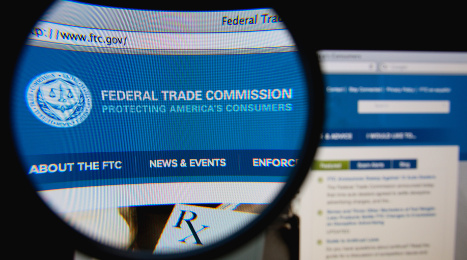6 FTC initiatives meant to eliminate wasteful regulations

Photo from Shutterstock.com
By subscribing, you agree to receive communications from Auto Remarketing and our partners in accordance with our Privacy Policy. We may share your information with select partners and sponsors who may contact you about their products and services. You may unsubscribe at any time.
WASHINGTON, D.C. –
Along with planning a workshop to examine financial issues and scams that can affect military consumers, the Federal Trade Commission said this week it is moving “aggressively” to implement presidential directives aimed at eliminating wasteful, unnecessary regulations and processes.
Acting chairman Maureen Ohlhausen acknowledged excessive regulation and bureaucracy can create significant burdens on the public, while diverting scarce resources from the agency’s core mission to protect consumers and promote competition.
“I welcomed the president’s directive, and we’re already working hard to achieve it,” Ohlhausen said. “The FTC will continue to pursue the right answer for consumers, but we will work hard to get there as efficiently as we can.
“We are focusing our resources where they will do the most good for the public and eliminating wasteful, legacy regulations and processes that have outlived their usefulness. American taxpayers deserve and expect nothing less from us,” she continued.
Though only in the early days of the new administration, the FTC highlighted that the following initiatives are already underway:
1. New groups within the Bureau of Competition and the Bureau of Consumer Protection are working to streamline demands for information in investigations to eliminate unnecessary costs to companies and individuals who receive them.
Subscribe to Auto Remarketing to stay informed and stay ahead.
By subscribing, you agree to receive communications from Auto Remarketing and our partners in accordance with our Privacy Policy. We may share your information with select partners and sponsors who may contact you about their products and services. You may unsubscribe at any time.
2. Both enforcement Bureaus are reviewing their dockets and closing older investigations, where appropriate.
3. The entire agency continues to work to identify unnecessary regulations that are no longer in the public interest.
4. The Bureau of Consumer Protection is actively reviewing closed data security investigations to extract key lessons for improved guidance and transparency.
5. The Bureaus of Consumer Protection and Economics are working together to integrate economic expertise even earlier in FTC investigations to better inform agency decisions about the consumer welfare effects of enforcement actions.
6. Because the agency said great ideas often come from within, Ohlhausen established a new capability within her office to collect and review ideas on process streamlining and operational efficiency opportunities from across the agency.
These initiatives are only the first steps, according to Ohlhausen, who added, “improving efficiency and productivity never stops in the private sector, government should operate no differently.
“I intend to keep focused on this issue, working collaboratively with career staff and agency leadership to identify and implement further streamlining and process improvements,” she went on to say.
Military workshop
The FTC announced today that it is hosting a workshop in San Antonio on July 19 to examine financial issues and scams that can affect military consumers, including active duty servicemembers in all branches and veterans.
Officials indicated the workshop also will mention FTC resources available to military consumer advocates and representatives on financial readiness and fraud prevention, including the FTC’s Military Consumer Toolkit, available at Military.Consumer.gov. The toolkit can allow personal financial managers, counselors and others in the military community to share practical financial readiness tips and can be individually customized and easily shared on social media.
“Servicemembers and veterans have made great sacrifices to serve our country,” Ohlhausen said. “Protecting military consumers through law enforcement and education is a top priority of the commission.”
The FTC’s Military Consumer Financial Workshop: Protecting Those Who Protect Our Nation will bring together military consumer advocates, consumer groups, government representatives (local, state, and federal), military legal services and legal clinics (including those at universities), all service branches, and industry representatives.
Topics of discussion at the daylong event include:
• Auto purchase, financing and leasing
• Student and other lending, including installment credit practices
• Information security issues
• Financial literacy and capability, including identity theft and financial resources
• Avoiding scams
Panelists interested in participating in this workshop should email any relevant information to: [email protected].
The workshop, which is free and open to the public, will take place at Trinity University’s Chapman Auditorium in San Antonio. A detailed agenda will be published at a later date.


